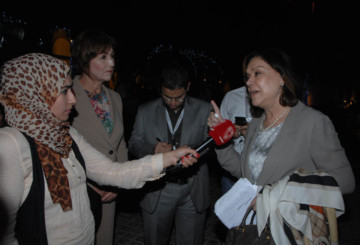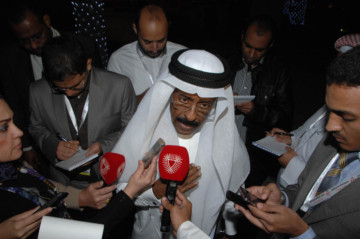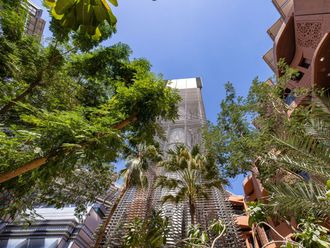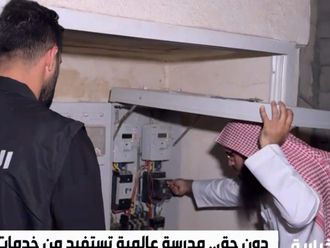
Manama: Participants in Bahrain’s a national dialogue agreed to set up a committee to draw up the agenda of the next round of talks after progress was stalled by divergences over a push by the opposition to have a representative of the king at the table.
The decision to have an eight-member committee map out the next round of the talks was taken on Wednesday after the 27 participants failed to agree on the agenda for further discussions.
“We had put forward our proposal for a draft that includes both the principles, procedures and points to be taken up,” said Jameel Kadhem, the spokesperson for the coalition of the opposition societies. “However, we were surprised that the management of the session had only the agenda, seemingly putting aside the procedures and principles. We could not accept that,” he said.
However, Ahmad Juma, the spokesperson for a coalition of 10 societies blamed the opposition for stalling the talks.
“We had already agreed on the procedures and principles and we wanted to move forward with the agenda, but opposition keeps taking us backwards to square one,” he said. “The agreement endorsed by all participants last week was specific about moving ahead with the agenda. Everybody should realise that we have a historic mission to fulfill and we cannot stagnate. We need to move forward,” he told the media as the participants were leaving the hall where the talks have been held since they were launched on February 10.
Member of parliament Ahmad Al Saati said that the decision to set up the eight-member committee, two from each of the four organisations involved in the talks, was taken after the participants failed to reach an amicable agreement.
“The committee has become a necessity after the opposition refused to engage in the talks without a full agreement on the procedures for the dialogue,” the lawmaker said on Wednesday evening. “The sixth round of talks had a bumpy start, but after some time it proceeded smoothly,” he said.
The two coalitions, each represented by eight delegates, have been holding the dialogue with eight independent parliamentarians — four from each of the two chambers of the bicameral parliament, besides three ministers representing the government.
The opposition however wanted a representative of King Hamad Bin Eisa Al Khalifa to take part in the talks.
The idea was floated at the fourth round of the talks “to add significance to the purpose and results of the national dialogue,” but the other coalition has refused the proposal, saying there was no solid ground for such a move.
Another point of contention between the participants was the insistence of the opposition on putting the results of the dialogue to a referendum “to ensure the support of the people”. However, the other societies held the view that the results should be conveyed to the king who will refer them to the parliament.
With dark clouds hanging over the dialogue launched to resolve a political deadlock that has divided the nation, people are clinging to the hope that the participants will be able to overcome their differences.
Despite the concerns, MP Sawsan Al Taqawi, one of the eight delegates from the bicameral parliament, said that she remained optimistic about the future of the talks.
Muneera Fakhro, from the coalition of opposition groups, also stressed the importance of the talks. “Everybody should be aware of the significance of reaching cordial solutions to enable Bahrain to move beyond a critical phase of its history,” she said.













